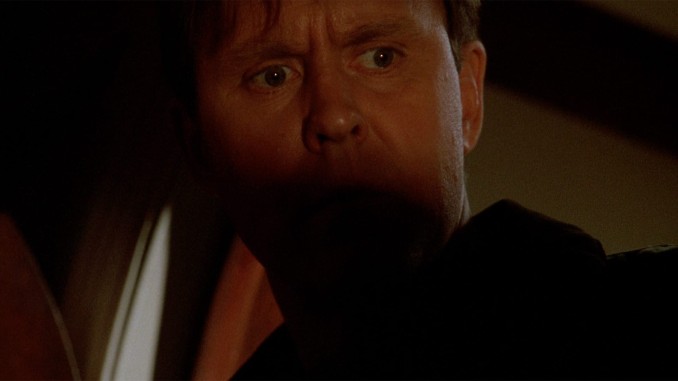Raising Cain and Brian De Palma’s De Ranged Palate Cleansers

Compared to 2022, where he’s consigned to scrape together the occasional film project with unreliable investors, Brian De Palma was riding high in summer 1992. He was also arguably at what was then a career low point. His previous project was The Bonfire of the Vanities, a big-budget, star-studded adaptation of a beloved novel that quickly turned into a new shorthand for notorious flops. Before that, he made Casualties of War, a better-reviewed but not especially successful Vietnam War picture that was overshadowed by Vietnam projects from his old Scarface screenwriter Oliver Stone. It had been a while since De Palma had made one of his signature Hitchcockian thrillers; his last one, at this point, was Body Double, eight years prior. So in the summer of 1992, De Palma returned to screens with Raising Cain, and accidentally established a new tradition: The once-a-decade straight-shot of palate-cleansing De Palma madness, to be revisited in 2002 and 2012 (though sadly not, so far, in 2022). It was, as the poster for Raising Cain concisely advertised it, a full course: “De Mented. De Ranged. De Ceptive. De Palma.”
Raising Cain is about a man murdering moms and kidnapping their babies in order to experiment on them. There is no getting around this, although so much of the movie occupies the headspace of Carter Nix (John Lithgow) that it might be hard to tell at first. Carter is a seemingly mild-mannered but easily agitated suburban husband and father who harbors a secret cadre of additional personalities, teased out by his abusive scientist father. These personalities work together to gather children for a continuing and ethically reprehensible study of trauma—which puts Carter in a tight spot as bodies start turning up. You may gather that none of this leaves him well-equipped to process the infidelity of his wife Jenny (Lolita Davidovich), which provides him with both a catalyst for further madness and (briefly) a convenient patsy for his murders. Are these plot twists that I’m revealing? It’s hard to say about a movie that is virtually all twist and no plot.
Plot is not the point of many De Palma pictures, and it’s especially not the point of these once-a-decade palate-cleansers. Raising Cain is very much the sight of a filmmaker joyfully freeing himself from the shackles of respectability. Even De Palma’s signature Hitchcock obsession gets weirder than usual. There are Hitch riffs galore in Raising Cain, especially related to Psycho: Multiple personalities; a killer with a nerdy affect; the car with a victim in its trunk, stopping short of sinking as far into a pond as a watching killer would prefer.
What makes the references so strange and specific here is how De Palma almost seems to want to make an entire movie based on the infamous Psycho ending, where a doctor arrives to deliver a torrent of exposition about the Psychology of Norman Bates—followed by a shot of Bates’ face, briefly superimposed with his mother’s corpse. (Notably, the final shot goes beyond this chilling image to show the pesky car being exhumed from the swamp, meaning that its homage in Cain also calls back to the last few minutes of Psycho, in an oblique sort of way.) Cain doesn’t save this exposition for its ending; the whole movie is knowingly lousy with it, whether it’s Carter explaining his father’s work to a friend/fellow parent/victim in an early scene, or the hilariously long and winding single-take walk-and-talk through a police station—where a woman who co-wrote a book with Carter’s father lays out his whole deal to a couple of cops—en route to the unveiling of a horrifying, horrified corpse.
De Palma’s films sometimes feel as if they’re alternating setpieces with exposition (a pattern not too far off from a lot of modern blockbusters, albeit executed less gracefully). Raising Cain makes gonzo attempts to flow those elements together into a single stream of consciousness. The movie has so many shock-dreams, fake-outs, flashbacks and conversations between multiple Lithgows that it feels like it’s in a constant state of fevered explanation. There’s even a director’s cut—first assembled by a fan, based on De Palma’s original script, then approved by the filmmaker for release on Blu-ray—that re-orders much of the action, and while it builds nominally better (it leads with Jenny’s affair, rather than Carter’s murders), the net difference isn’t especially revelatory. It’s a funhouse nightmare forwards and backwards.
-

-

-

-

-

-

-

-

-

-

-

-

-

-

-

-

-

-

-

-

-

-

-

-

-

-

-

-

-

-

-

-

-

-

-

-

-

-

-

-








































